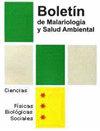Efecto de las emociones positivas post ejercicio como terapia complementaria en pacientes VIH/SIDA con tratamiento retroviral
Q4 Immunology and Microbiology
引用次数: 0
Abstract
Since the outbreak of the HIV pandemic, more than 30 million people have died from AIDS in the last 40 years; thus the human immunodeficiency virus (HIV) and the acquired immunodeficiency syndrome (AIDS) continue to spread throughout the world. The effectiveness of retrovirals with modern drug combinations for the treatment of HIV/AIDS allows many people to improve their life expectancy. Although retrovirals have achieved a better quality of life among patients suffering from the disease, the disease can result in a number of adverse physical and physiological effects. In many cases, patients infected with the HIV/AIDS virus could be treated with other alternative forms adjunct to retroviral treatment such as physical exercises. The purpose of this research is to determine the effect of positive emotions generated after physical activity in various parks in the city of Lima as a complementary therapy in HIV/AIDS patients. For this, 25 patients divided into two groups were studied: a control of 10 people who was not under the exercise program, and a second group of 15 people who underwent an exercise regimen for one year. The experiments were analyzed using a Likert-type survey that measured participants' positive emotions and CD4 T-cell count. The results showed that people under the exercise regimen had a higher assessment of both positive emotions and CD4 T cells.运动后积极情绪作为辅助疗法对接受逆转录病毒治疗的艾滋病毒/艾滋病患者的影响
自艾滋病毒大流行病爆发以来,在过去40年里,有3 000多万人死于艾滋病;因此,人体免疫机能丧失病毒(艾滋病毒)和获得性免疫机能丧失综合症(艾滋病)继续在世界各地蔓延。抗逆转录病毒药物与现代药物联合治疗艾滋病毒/艾滋病的有效性使许多人的预期寿命得以延长。尽管抗逆转录病毒药物改善了该疾病患者的生活质量,但该疾病可导致一些不利的生理和生理影响。在许多情况下,感染艾滋病毒/艾滋病的病人可以通过其他替代形式,如体育锻炼,辅助抗逆转录病毒治疗进行治疗。本研究的目的是确定在利马市的各个公园进行体育活动后产生的积极情绪作为艾滋病毒/艾滋病患者的补充疗法的效果。为此,研究人员将25名患者分为两组:对照组有10人,他们没有参加锻炼计划,第二组有15人,他们参加了一年的锻炼计划。研究人员使用李克特式调查对实验进行了分析,该调查测量了参与者的积极情绪和CD4 t细胞计数。结果显示,接受锻炼的人对积极情绪和CD4 T细胞的评估都更高。
本文章由计算机程序翻译,如有差异,请以英文原文为准。
求助全文
约1分钟内获得全文
求助全文
来源期刊

Boletin De Malariologia Y Salud Ambiental
INFECTIOUS DISEASES-PARASITOLOGY
CiteScore
0.40
自引率
0.00%
发文量
51
期刊介绍:
Information not localized
 求助内容:
求助内容: 应助结果提醒方式:
应助结果提醒方式:


